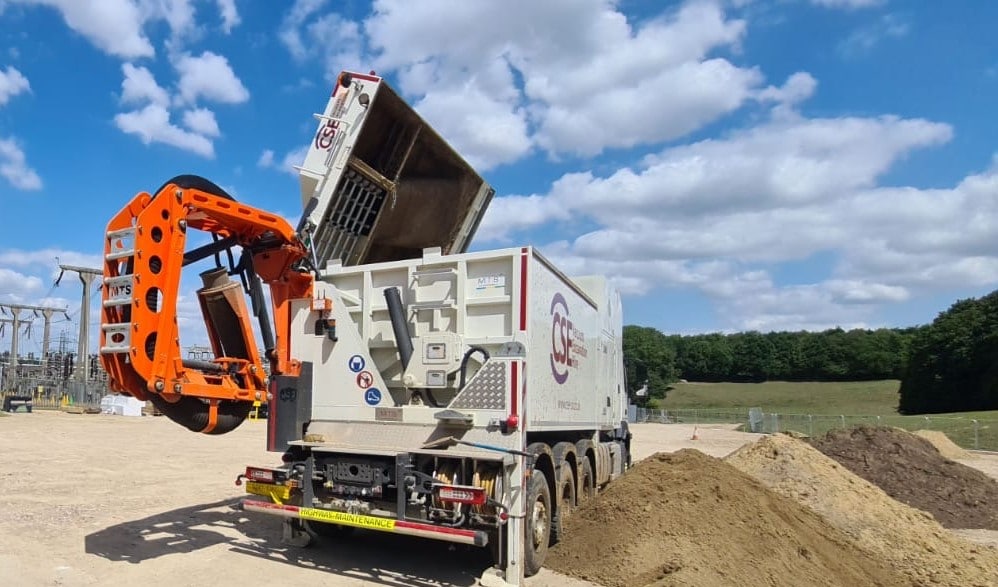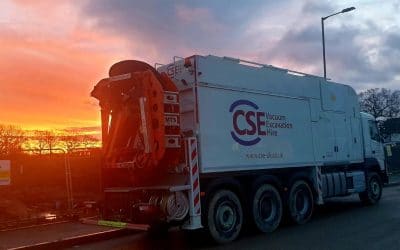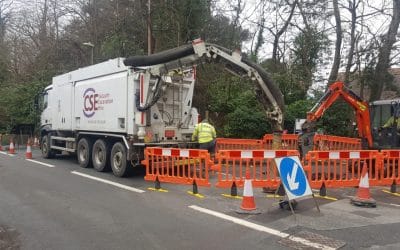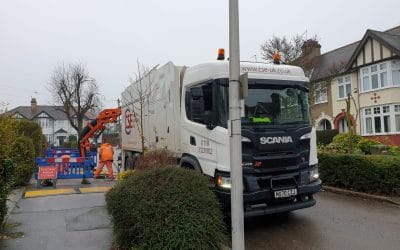Safe excavation and grounds are a necessary part of modern construction work, but with Health and Safety regulations continually being changed and updated, ensuring that the task at hand is completed in a safe and efficient manner can sometimes be a challenge.
With our trusted experts on hand, we have listed our top tips for a safe excavation.
Establish
The first and most important step to any safe excavation job is knowing what lies beneath your feet as the modern road and pavements may contain huge, complex networks of pipes and cables. Therefore, it is vital that everyone on-site is fully prepared and with modern techniques such as ground penetration radar (GPR) can be widely beneficial to help isolate any buried services.
Plan
When excavating the ground, any mistakes made can prove to be fatal and this is why is it important to conduct a thorough risk assessment, detailing potential dangers.
Brief
Take the time out to properly brief your team to ensure that they are ready to deal with any raised issues. Damage to services such as electricity cables, gas pipes and water pipes have been responsible for several deaths as well as serious injuries. A large number of these incidents could have been prevented if the risks had been correctly identified and the workers were adequately prepared.
Method
Safe excavation cannot be left up to chance and there have been many ties in which a shovel and a spade are far too risky. With this being said, modern excavation techniques such as Vacuum Excavation drastically reduces the amount of contact needed between the team members and any buried services.
It is also a quicker, more efficient method and will drastically reduce the risk of costly service strikes.
Exposure
Vacuum Excavation has become an increasingly popular method to safely excavate around buried surfaces. The high-powered truck remote excavation arm can quickly and expertly remove any debris from the surrounding area, which means that no manual digging is required.
However, if traditional methods have been chosen to excavate, it is vital that all team member understand the potential risks and are able to use detection tools as well as practice safe excavation techniques. This is done by manually digging and avoiding the use of any power tools.
Appropriate
Wearing appropriate safe clothing is highly important for all site workers due to the risk of exposure. Working with a bare chest on show will increase the risk of severe burns and man-made fibres can melt into the exposed skin.
In the unfortunate event that a live electric cable or gas pipe is struck, specially designed protective clothing may save someone’s life.
Update
If a change does arise, such as uncovering an unexpected pipe that you and your team are not prepared for, do not continue. Adapt your plan to incorporate the unexpected change and ensure that everyone is properly briefed and the risk assessment has been amended accordingly.
This will cover you from a Health and Safety perspective and will also help to minimise the risk of any costly service strikes.
Vacuum Excavation offers a faster, more cost-effective solution than manual hand digging. A standard Vacuum Excavation can remove 2m3of spoil per hour, while an inbuilt skip can hold up to 10m3 before it needs to be emptied. In short, one Vacuum Excavation vehicle will complete a job in the fraction of time in which it would take a team of labourers or a digger.
Another beneficial aspect of Vacuum Excavation is that it is a significant time saver.
If you would like to enquire about any of our systems or hire our team for work, please get in touch with a member of our team who will be happy to answer any questions.





